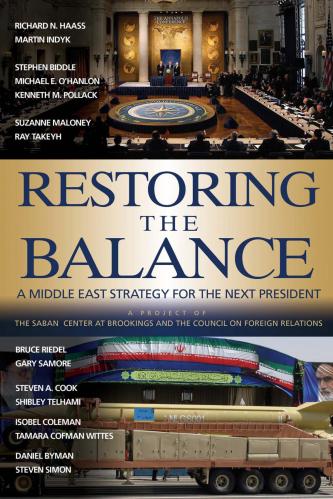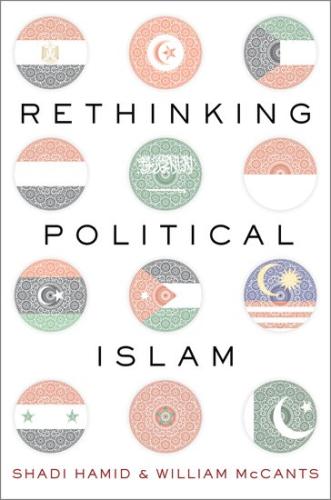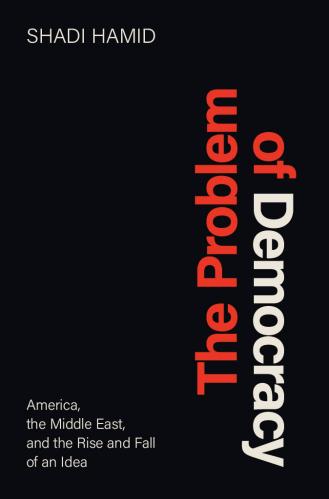History will remember the president’s landmark Cairo speech in 2009, but not the way he intended, writes Shadi Hamid. This piece originally appeared in Foreign Policy.
Sometimes it’s difficult to remember that President Barack Obama’s 2009 Cairo address really happened. At the time, the very fact that it could happen — delivered no less by a child of a Muslim father with the middle name Hussein — was incredible enough.
After eight taxing years under George W. Bush, the Cairo speech was meant to propose a stark shift and a “new beginning.” The Iraq War had exhausted and polarized the nation and the world, and the opportunity to begin again was met with relief and even excitement, including in the Middle East. For a foreign-policy speech that the White House had made clear was the most important of the newly elected president, Obama would speak directly to Arabs, in the Arab world’s most populous country. It is difficult to think of another speech that captured the boundless optimism and sense of possibility that Obama embodied in his first days in office.
I remember thinking at the time that if a man with Muslim family who had spent his childhood years in a Muslim-majority country couldn’t improve America’s relationship with the Muslim world, who would? Today, the Cairo speech is discussed, if at all, as a symbol of the gap between what the Obama administration might have been and what it actually was.
I recently mentioned the Cairo address to a friend who is significantly younger than I am, and he confessed to not even being aware that it existed. I couldn’t blame him. To read or watch the speech nearly eight years later is something of a surreal experience. In going over the transcript, I felt not just sadness but an almost angry desire to undo the last eight years and to try a rerun of history, with its endless configuration of counterfactual possibilities.
The speech, running at around 6,000 words and 55 minutes, is an impressive piece of oratory. No other U.S. statement on the Middle East has been assembled with as much care. There are a number of subtle touches: Obama beginning his remarks with the Islamic greeting assalamu alaikum, calling the Quran the “Holy Quran,” and quoting some of its most well-known verses. The sensitivity to Muslim history, but also to the sense of grievance that pervades it, is nothing short of remarkable. (There are also some well-intentioned but odd asides, like “I consider it part of my responsibility as president of the United States to fight against negative stereotypes of Islam wherever they appear.”) Meanwhile, on the Israeli-Palestinian conflict, it still jars me to hear an American politician, and in this case a president, speak about Palestinians as actual human beings and not just as problems to be negotiated.
Much of the speech, however, has not aged well, with any number of passages suggesting a rare and curious historical artifact. Although there is a checking-the-box section on democracy in the speech, Obama, as a candidate and then as president, had never seemed comfortable with a robust democracy promotion agenda, something he associated with his predecessor’s failed foreign policy. It was, of course, Obama’s bad fortune to be president when the Arab Spring broke out and brought new issues to the fore, including how to build support for fledgling democratic transitions. Soon, civil wars in Syria, Libya, and Yemen — and domestic conflict more generally — became the central concern in the region. Yet the words “civil war” do not make an appearance in Obama’s 2009 speech, and why would they?
Instead, the Israeli-Palestinian conflict takes up more than one-sixth of an already long speech. At the time, on the left as well as the “realist” right, the idea that the decades-long conflict (and staunch American support for Israel) was the primary source of distrust and anti-Americanism was a popular one; perhaps, if the conflict could be settled, it could be the start of a “new beginning” with the Muslim world and particularly the Arab world. This is what Jeffrey Goldberg calls the “linkage” theory of the Arab-Israeli conflict. Of course, the conflict matters (and even if it didn’t, the humanitarian imperative would be considerable), but it matters much less today, amid an unraveling region, than it might have seemed in June 2009, when Obama took to the stage at Cairo University.
And then there is Iraq. The entire speech — and the very impetus behind a speech that would propose a “new beginning” — is colored by Obama’s formative experiences opposing the Iraq War and seeing Iraq, along with the Arab-Israeli conflict, as the mood music for the deteriorating relationship between the United States and the Middle East. In this respect, he is certainly right. America’s disastrous adventure in Iraq stands apart as a kind of original sin. But it’s an original sin less for what it told us about the essence of life and politics in the Middle East than for the chain of events it set off: the intensifying terrorist threat, including from the Islamic State’s progenitors; the growing influence and ambitions of Iran; and the American electorate’s (and Obama’s) disillusion with the idea that U.S. hard power could be used as a force for good, which, in turn, restricted America’s ability to act decisively in the Syrian civil war.
As for anti-Americanism, the Iraq War was never the cause; it merely fueled something that was always there. Bringing an end to the Iraq War ended up doing little to improve attitudes toward the United States. In the two Arab countries for which the Pew Research Center has survey data for both Bush and Obama’s latter years in office, U.S. favorability ratings are worse under Obama then they were in 2008.
The drawdown of U.S. troops in Iraq as well as Afghanistan — one of Obama’s major foreign-policy achievements — gets at something deeper about his foreign-policy legacy. Obama believed that the United States had long been too involved in the Middle East and that this very fact of involvement — regardless of the outcomes it produced — was a problem to be resolved, by devolving more responsibility to Arab allies and pivoting to other regions, including Asia. But a less involved America has not helped the Middle East; if anything, the opposite is true. It is no accident, then, that the Cairo address is excellent on the rhetoric of mutual respect and understanding; Obama said relatively little, however, about what such respect would consist of in practice, beyond small-scale boilerplate on scientific and educational cooperation.
In retrospect, this is what I didn’t, and probably couldn’t, understand about the Cairo speech when I watched it eight years ago. However much respect he had for Islam or for Arab grievances, Obama had little interest in doing more and committing the United States to help rebuild the states and societies that were soon to reveal, during the Arab Spring, just how broken they were.
Cynics might find the irony delicious, but it’s better viewed as a tragedy. Despite hoping to keep them at arm’s length, Middle Eastern conflicts — particularly the Syrian catastrophe and its spillover effects, including into the heart of Europe — have undermined the liberal world order. They have stained, perhaps fatally, what might have been in more peaceful times an admirable and even groundbreaking presidential legacy.
The Brookings Institution is committed to quality, independence, and impact.
We are supported by a diverse array of funders. In line with our values and policies, each Brookings publication represents the sole views of its author(s).









Commentary
Obama’s good intentions in the Middle East meant nothing
January 23, 2017